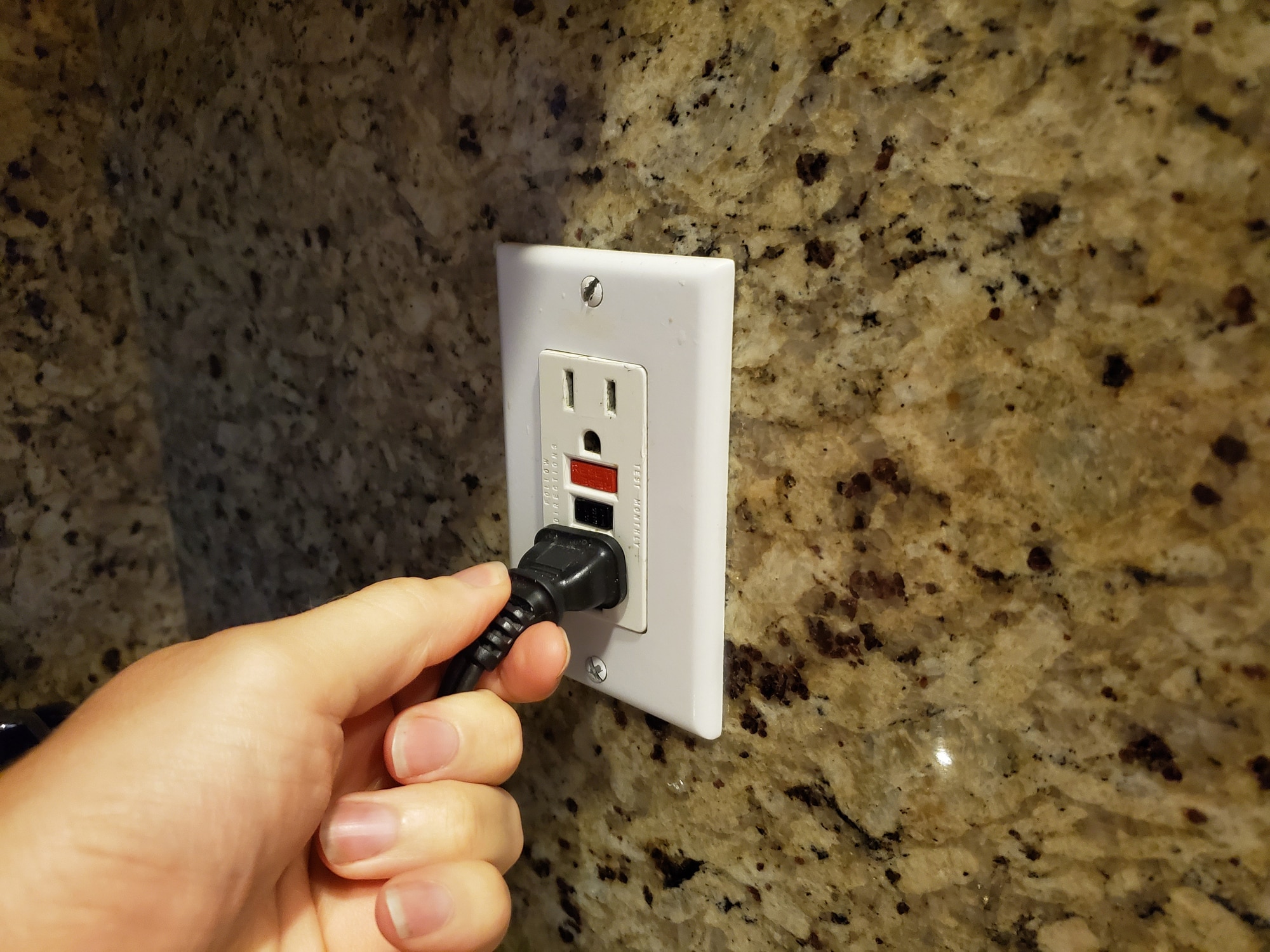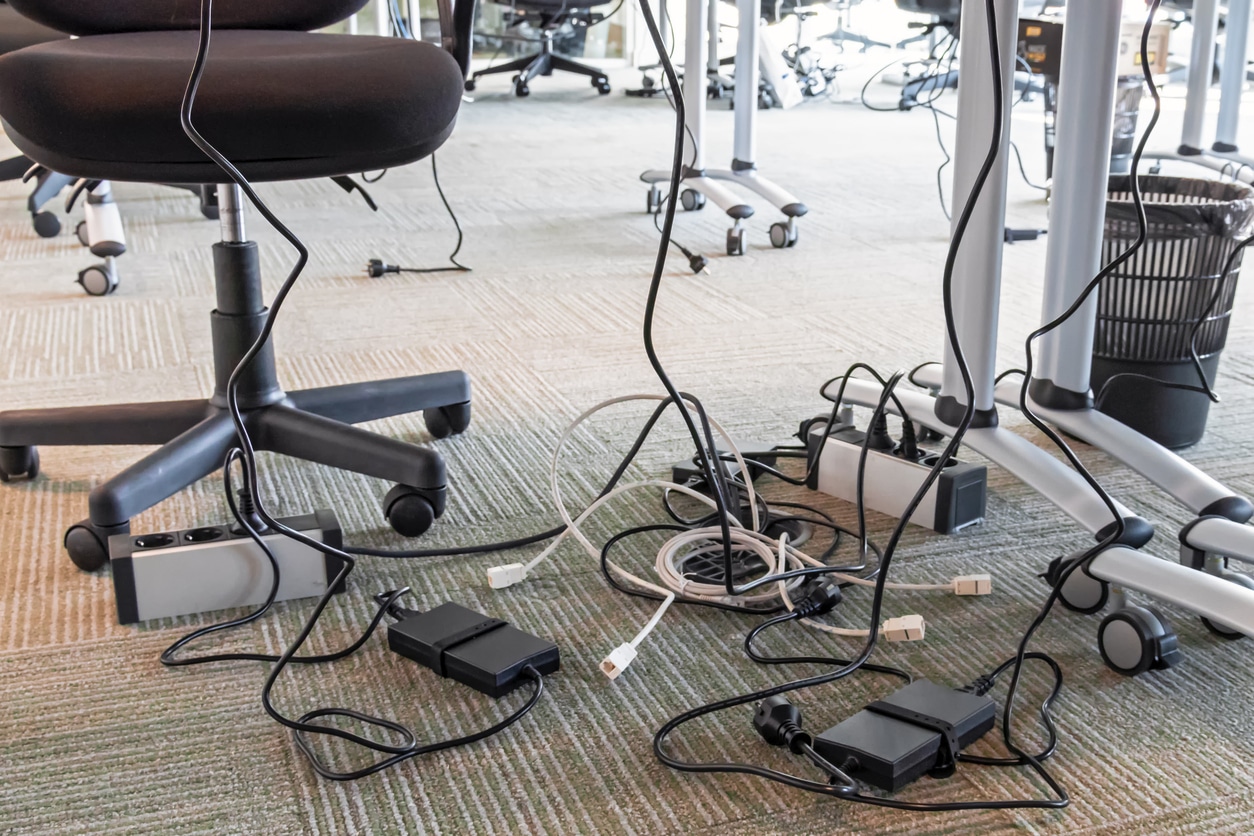Your trusted home service experts
Celebrate National Electrical Safety Month with These Tips
May is National Electrical Safety Month.[1] This is when the Electrical Safety Foundation International (ESFI) and other organizations work to educate people about electrical safety.
This is an excellent time to evaluate your home and any risks that may be present. Homeowners can participate by finding and fixing electrical safety risks in their homes.
Hoffmann’s Team of Experts
The editorial team at Hoffmann Brothers has been in the industry for over 30 years.
Understanding Electrical Safety
Electricity is essential to modern life but can pose serious safety risks if improperly maintained. Electrical issues cause over fifty thousand fires a year, leading to nearly five hundred deaths and over one thousand injuries.[2] When electrical systems aren’t working as they should, you have a higher risk of hazards like fire and electrical shock. Your home can even be at risk for explosions if the right combination of factors is present.
To protect yourself and your property, you first must learn some general electrical terms. These are:
- Voltage: Voltage is the amount of pressure an electrical circuit’s power source uses to push current through the circuit. The force makes the electrons flow and is measured in volts. In the United States, homes have electrical circuits that use 110 to 120 volts.
- Current: Current is the rate of the flow of electrons in an electrical circuit. It is measured in amperes, typically called current “amps.”
- Wattage: Wattage, measured in Watts, is the power used in the circuit. Each electrical device you use has a wattage.
Electrical Safety at Home
As you look around your home this month, take stock of potential electrical hazards. For example, if you have an electrical outlet near a water source, you are at higher risk of electrical shock. If you have frayed cords or outlets with apparent signs of smoke damage, you are at risk of an electrical fire. Here are some common safety concerns to keep in mind.
Preventing Shocks and Fires

Some of the most significant home risks are electrical fires and shocks. One of the best ways to protect yourself is to regularly maintain and inspect your electrical system and the equipment you use. Signs of damage, like fraying cords, mean you must take action.
Another place where risk is high is in the bathroom and kitchen, where water and electricity are both present. Any outlets near water sources should be GFCI outlets. These outlets will interrupt the flow of electricity if they detect a ground fault, such as if water gets into the outlet.

In addition, paying attention to how you use your cords, appliances, and outlets is vital. Here are some general safety tips to keep in mind:
- Use power strips sparingly, as they are at high risk of overloading.
- Use grounded outlets to protect against electrical shocks.
- If performing electrical work on an outlet or switch, turn off the power to the circuit first.
- When using extension cords, ensure they are rated for the load you put on them and, if used outdoors, are approved for outdoor use.
- Never splice cords to repair damage. Replace all damaged cords.
- When installing new appliances, ensure the circuit breaker is equipped to handle them and upgrade if needed.
- When replacing light bulbs, check the wattage. The bulb’s wattage should be equal to or less than that of the light fixture.
- Inspect electrical appliances and their cords before using them.
- Do not use electrical devices when wet or standing on a wet floor.
- Avoid running extension cords under a rug or furniture, where fire risk increases.
- Unplug appliances when not in use to reduce the risk of an electrical fire.
Housekeeping, Maintenance, and Safety Measures
General safety tips are vital, but you can take additional steps to ensure your home is safe. For instance, ensure your electrical areas, like your gaming or technology center, are clean and organized. Dust can increase the risk of a spark igniting and causing a fire.
Schedule regular inspections and electrical system maintenance with a qualified electrician. An electrician can spot concerns you may not notice.
If you have children in your home, educate them about electrical safety. For very young children, covering outlets with childproofing locks is an important safety measure to protect them and your home. Remember that electrical risk is always present, so keep your children educated from an early age.
Training and Avoiding Untrained Activities
When you need to do electrical work beyond basic maintenance, always hire a licensed electrician with proper electrical safety training to protect your home. Doing your own electrical repair without the appropriate training is a considerable risk. When doing so, you put yourself at risk for electrocution if you make a mistake. If the work is not done to code, you put your home at risk for an electrical fire. Don’t take the risk. Hoffmann Brothers has licensed electricians ready to help you.
Electrical Safety in the Workplace

In addition to the dangers of overloaded outlets or unsafe electrical appliances, you may have additional industry-specific hazards. Here are some examples:
- Technology centers: The large number of computers and other equipment used in tech-heavy work can increase the risk of shock and electrical fire.
- Construction: In construction, you need to be aware of the risks posed by your electrical equipment and the risks from buried or overhead power lines. Coming in contact with one of these could lead to electrocution.
- Industrial: Industrial work also involves electrical risks from power lines and equipment. Many types of industrial work involve liquids, which can create electrocution hazards if they come in contact with electrical wiring.
- Manufacturing: Water hazards, improper wiring, and improper grounding are all risks in many manufacturing settings. Damaged electrical equipment can also put you at risk.
To protect against workplace electrical hazards, always follow posted safety rules and regulations and familiarize yourself with OSHA’s electrical safety recommendations.[3]

Additional Resources and Information
If you want to learn more about electrical safety, the National Fire Protection Association (NFPA) and the ESFI are excellent organizations to tap into for facts about electrical safety.
The ESFI is an organization exclusively dedicated to promoting electrical safety. For National Electrical Safety Month, they publish a variety of resources to answer all of your electrical safety questions. Visit the ESFI website for more information.
The NFPA also supports and promotes National Electrical Safety Month, and for good reason. You can find additional safety information on the NFPA website.
Stay Safe Around Electricity
Attention to electrical safety is the best way to lessen your risk and protect your family. While National Electrical Safety Month highlights these concerns, you must be vigilant daily. Learn about electrical safety and your local and national resources, and implement safety practices in your home and workplace. When you need electrical services or an electrical safety inspection, contact the team at Hoffmann Brothers for professional help from qualified, licensed electricians.
St. Louis
Explore the services we
offer at our St. Louis Location!
-
(314) 664-3011
-
1025 Hanley Industrial
Brentwood, MO 63144
Nashville
Explore the services we
offer at our Nashville Location!
-
(615) 515-3015
-
45 Willow St
Nashville, TN 37210



